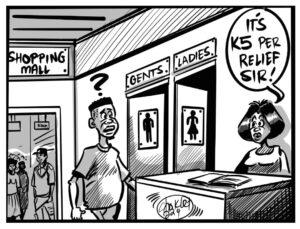The Zambia Association of Manufacturers (ZAM) says Zesco should only consider a short term electricity tariff hike for the purpose of importing power to cushion the current power deficit.
And ZAM vice-president Chipego Zulu says the current load shedding is having a very negative impact on manufacturers as they now have to find other sources of energy which is unsustainable due to high cost.
Currently, the country is experiencing a power deficit with citizens experiencing up to 12 hours of load management per day.
In an interview, Zulu noted that Zesco should consult extensively if they are to propose a tariff hike so that there is a win-win situation for all.
“Our considered view on that is because energy is such a critical input for manufacturers, if Zesco is intending to import power in order to mitigate the current power deficit, then its necessary that they consult on the proposed tariff hike so that there is a win-win outcome for everyone. So if Zesco is going to hike the tariffs, they must follow a transparent process that will allow us to see how much the tariff is going to go up by, over what period of time so that it should not be a long term tariff hike, it is for the purpose of importing that power for that time frame. And beyond that point, we urge Zesco management team to ensure that they finalize and release the cost of service study because it would inform all stakeholders on what the actual cost of generating hydro power is for Zambia and that will also inform the move to cost reflective tariffs,” Zulu said.
“In the immediate term, noting that the water levels are at a critical level, should the utility seek to import power in order to mitigate the seemingly growing deficit, we welcome a transparent consultative process that will ensure a win-win outcome for industry and the power utility in terms of rates and the cost of energy.”
Zulu said there was need to provide incentives in the 2020 budget to allow additional participation of the private sector in the energy sector.
“In the mean time, since we are currently in the budget process, there is definitely need to ensure that incentives are created to allow additional participation from the private sector in the power generation or energy sector. We note there are alternatives such as solar, there is wind, there is thermal, there is biogas, so many alternatives but they need to be adequately incentivized. So these are some of the things that we just consider as well as Zesco management ensuring that they also begin to diversify their energy mix from hydro they must move in to the solar, they must move in to other alternatives as well to ensure that the burden on the grid is reduced for hydro power,” she said.
Meanwhile, Zulu, who also doubles as ZAM spokesperson, added that the current load shedding was having a very negative impact on manufacturers.
“More specifically, inadequate supply of energy results in an increase in costs of production and has a negative impact on manufacturing costs. To mitigate the same, manufacturers resort to the purchase of diesel generators to power their plants. This is an added cost and not all manufacturers are able to bear the burden of the same. According to a study undertaken by the International Growth Centre on the impact of load shedding on the manufacturing sector, the observed marginal cost of running diesel generators to mitigate against the cost of power outages is greater than US$0.25 per kilowatt hour which is substantial. Furthermore, small scale industries are deeply affected by the power deficit due to their inability to power industrial grade diesel generators. There is therefore a negative impact on job creation and livelihoods,” Zulu noted.
“To this end, ZAM has actively been engaging the power utility ZESCO and its management team to ensure that the manufacturing sector is cushioned from the negative impact of loadshedding with varying degrees of success. Members on the Copperbelt and in Lusaka have been engaging with ZESCO management through ZAM to address challenges arising from unplanned power outages amongst other key concerns.”
She lamented that load shedding was also affecting the competitiveness of Zambian businesses.
“Electricity is a major input in most manufacturing processes and the effects of erratic and/or unstable supply of energy to the sector arising from both planned and unplanned outages include; damage to equipment from unexpected surges and outages, damage to inventory due to need to rework and/or discard damaged products, damage to firm reputation as a result of inability to deliver stocks on time, extra security and staffing costs, as well as the potential loss of clients. This raises significant concern for the association and its mandate to spur the increased consumption of locally manufactured products. Generally, power outages translate into lower productivity and lower levels of price competitiveness making the Proudly Zambian ethos of “think local first – Buy Zambian” less palatable due to price differentials between local and imported products,” lamented Zulu.












